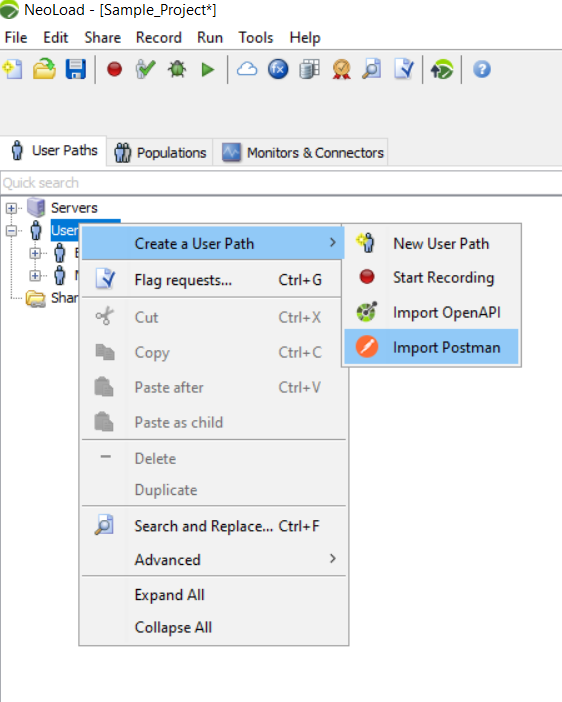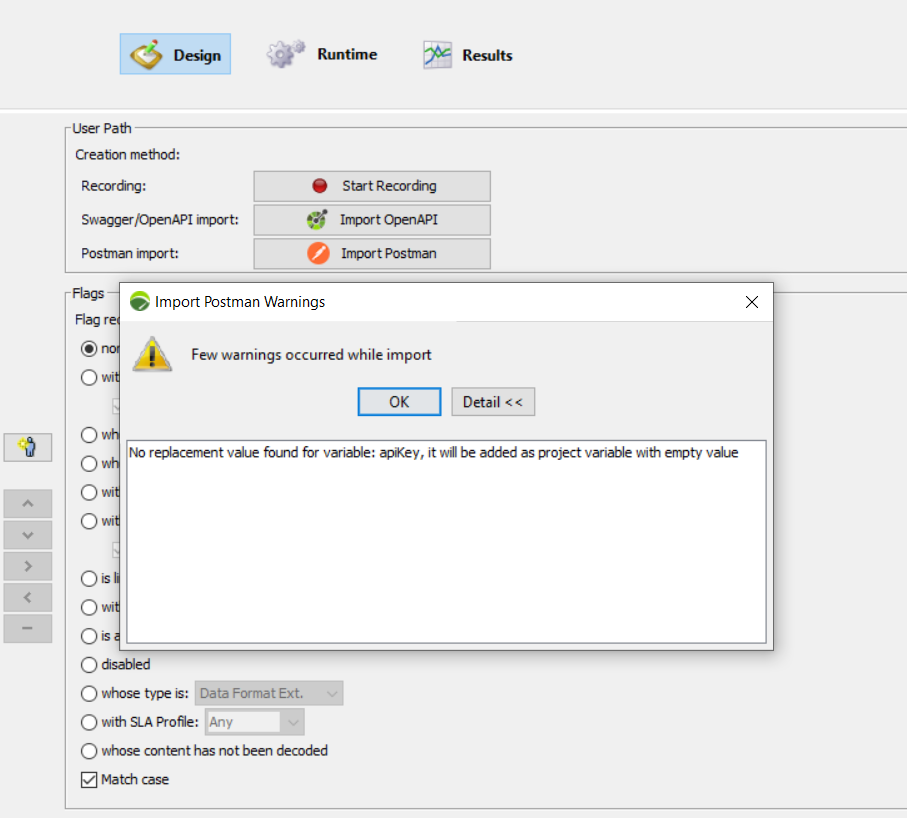Import Postman collections
When you're ready to scale your testing from individual API requests to performance testing, you can use NeoLoad to import your Postman collections in JSON format. That means you can quickly go from testing individual API interactions, to load testing with your existing Postman collections.
Start your import
To start importing a Postman collection in NeoLoad, follow these steps:
In the Design section of NeoLoad, go to the User Paths panel.
Select Import Postman to start integrating your Postman collection.
In the pop-up window, select the folder icon to open your file directory.
Navigate to and select the JSON file you want to import.
Confirm the selection to import the collection into NeoLoad.

Importing a Postman collection from the User Paths panel
If NeoLoad can't use some items from your imported, it won't stop the import. You'll see a list of any items that couldn't be used at the end of the import.
NeoLoad currently supports the following features:
Postman Collection versions 2.0 & 2.1.
All types of variables and requests/groups, except GraphQL.
Various authentication mechanisms, including API Key, Bearer, Basic, and NTLM.
At the moment, NeoLoad doesn't support disabled elements or certain Postman-specific features. You can import a collection with disabled elements, but there's a chance the disabled elements won't be operational in NeoLoad. Certain Postman-specific features, such as responses, events, scripts, proxies, SSL client certificates, and cookies won't import.
Post-import warnings and troubleshooting
Import Warnings
The Import Postman warning dialog provides feedback on potential import issues, such as variables without default values.
If you have any variables without default values, you'll need to manually add the correct values after you finish importing.

The Postman import caused a few warnings
What's next
Want to record your load test cases, faster? Check out other test design elements that can help you on your load testing journey:
You're done reading? Design a test scenario and jump right into NeoLoad load performance testing.